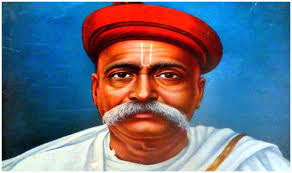Bal Gangadhar Tilak, popularly known as “Lokmanya” Tilak, remains one of India’s most celebrated freedom fighters and a visionary leader who played a pivotal role in shaping the nation’s struggle for independence. Born on July 23, 1856, in Ratnagiri, Maharashtra, Tilak’s journey as a fearless leader began from an early age.
Tilak’s ardent commitment to social and political reforms became evident during his education at Deccan College and subsequent legal studies in England. His experiences abroad further fueled his determination to serve the country and advocate for Indian rights and autonomy.
Upon his return to India, Tilak took an active interest in journalism and founded newspapers like “Kesari” in Marathi and “The Mahratta” in English, which became powerful platforms to express his nationalist views and rally support for India’s independence. Through his writings, he fearlessly critiqued colonial policies and called for a united India to fight against British rule.
A strong advocate of Swadeshi and Boycott movements, Tilak emphasized the importance of self-reliance and the use of indigenous products to challenge British economic dominance. He believed that economic independence was integral to achieving political freedom.
Tilak’s leadership during the Indian National Congress sessions further solidified his status as a prominent nationalist leader. He was instrumental in shaping the concept of “Swaraj” or self-rule, which became a central theme of India’s freedom movement.
In 1905, Tilak initiated the celebration of the Ganesh Chaturthi festival as a public event, transforming it into a symbol of social and political unity. This move not only revived Indian traditions but also served as a platform for political mobilization.
However, his active involvement in the freedom struggle led to his arrest and imprisonment by the British authorities on several occasions. Despite facing hardships, Tilak’s determination remained unshaken, and he continued to inspire the masses with his speeches and writings.
Tilak’s ideas and actions inspired a generation of freedom fighters, including Mahatma Gandhi. His call for “Swaraj is my birthright, and I shall have it” became a rallying cry for India’s struggle for independence.
Bal Gangadhar Tilak’s immense contributions to India’s freedom movement and his role as a social reformer earned him the title of “Lokmanya,” meaning “beloved leader of the people.” His relentless pursuit of freedom, nationalism, and social justice left an enduring impact on India’s history and continues to inspire generations in their quest for a better and independent nation.
